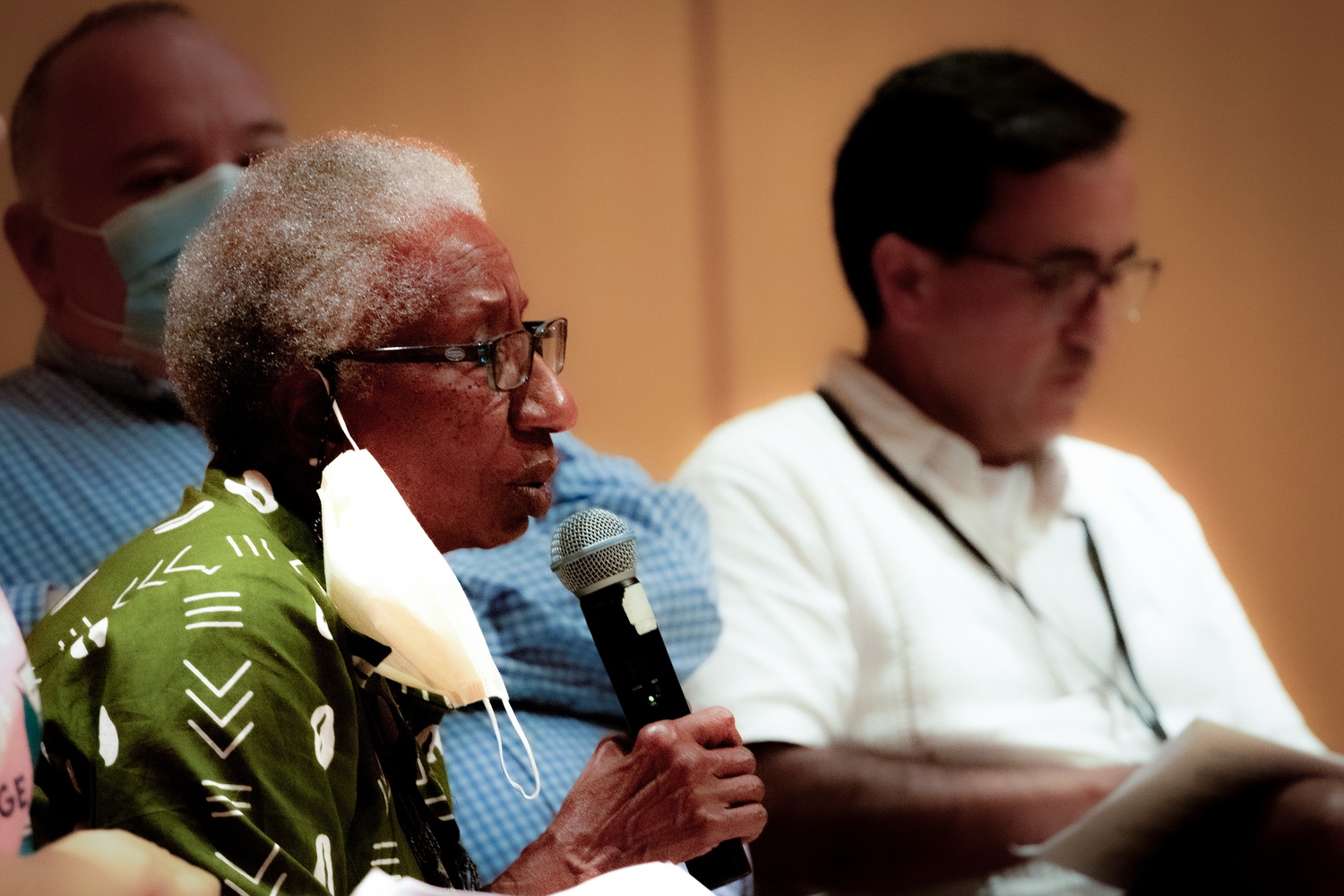
News
Summers Will Not Finish Semester of Teaching as Harvard Investigates Epstein Ties

News
Harvard College Students Report Favoring Divestment from Israel in HUA Survey

News
‘He Should Resign’: Harvard Undergrads Take Hard Line Against Summers Over Epstein Scandal

News
Harvard To Launch New Investigation Into Epstein’s Ties to Summers, Other University Affiliates

News
Harvard Students To Vote on Divestment From Israel in Inaugural HUA Election Survey
Veteran Educator Caroline M.L. Hunter Plans to Address Achievement Gaps in School Committee Reelection Bid

Caroline M.L. Hunter has lived in Cambridge for more than 50 years, worked at the Cambridge Rindge and Latin High School for 34 years, and raised a child in the Cambridge school district. In her bid for a second term on the School Committee, she plans to rely on all three experiences to inform her leadership.
Hunter is particularly eyeing third grade literacy, homogeneous teaching staff, and ongoing achievement gaps as the three issues she hopes to resolve. She has already been a district leader during her last two years on the School Committee, serving as vice chair since January 2024.
As vice chair, Hunter helped lead this year’s superintendent search along with Mayor E. Denise Simmons — a process that was embroiled in controversy as parents and educators complain about a lack of transparency. Just days ago, parents learned that Hunter and Simmons worked together to pay an additional $40,000 to an external superintendent search firm — without the knowledge of the School Committee.
“It’s a difficult task in Cambridge to do something without any criticism,” she said of the search process.
Despite the controversy, Hunter said that her experience as an educator and administrator gives her an edge in a historically crowded field, providing her with her a unique angle to tackle the district’s most pressing issues.
“I’ve had actually the ability to move students from below grade level to above grade level and into success,” she said. “I have that personal experience, and so that’s my motivation, because I know it can be done.”
Candidates have zeroed in on the district’s persistent racial and socioeconomic achievement gaps as a serious problem to address, and Hunter thinks she knows how to best solve the problem.
She laid out three key areas she believes the district needs to focus on to tackle CPS’s persistent achievement gaps, including improving reading scores, diversifying teaching staff, and family engagement.
Hunter specifically focused on low third grade reading scores as a problem, citing research that finds that students who struggle to read third grade are “left out of education.”
“I’d like to focus on third grade reading and all those children who are below grade level, to give them all of the what we call rigorous, strategic, socially relevant supports that will allow them to achieve and be on grade level,” she said.
“We must figure out how to teach our children how to read, because once we do that, they have access to the world,” she added. “It is a human right.”
Beyond reading levels, Hunter also said the district needs to diversify teachers across “racial,” “ethnic,” and “linguistic” lines. She does not believe that the district has fully investigated or understood the importance of a diverse teaching staff to improving learning outcomes — and is eager to bring this perspective to the table in her second term.
“There’s some kids who could say, ‘I’ve never had a teacher of color,’” she said. “That is a tragedy, given the diversity in our city.”
But Hunter’s staffing plans don’t end with diversification. She is also planning to prioritize “accountability for all employees” — namely, teacher evaluations and employee performance reviews — if reelected.
Hunter sees students’ families as crucial partners to help improve testing and learning outcomes – especially for students of color, English language learners, and low-income students.
“Those families feel like they are under-supported,” she said.
Hunter referenced her support of the district’s “train the trainer model” that supports parent liaisons to train other parent liaisons as an example of how she has included families in the past. Family liaisons “help families and schools build effective partnerships” to support learning and wellbeing, according to the CPS website.
“I support the notion that the more we allow caregivers to train other caregivers and to answer their questions and to mentor and support each other, the better we will be with student achievement,” she said.
Hunter said that to meaningfully address achievement gaps, the district needs to look at students who have consistently been underserved and figure out how it needs to change to support them.
“It says we have to look at the bias in the curriculum, in the materials, in the teachers, and whatever structures that we have that limit access and opportunity for any child,” she said.
Correction: October 30, 2025
A previous version of this article misspelled the name of Cambridge Mayor E. Denise Simmons.
— Staff writer Claire A. Michal can be reached at claire.michal@thecrimson.com.
Want to keep up with breaking news? Subscribe to our email newsletter.
